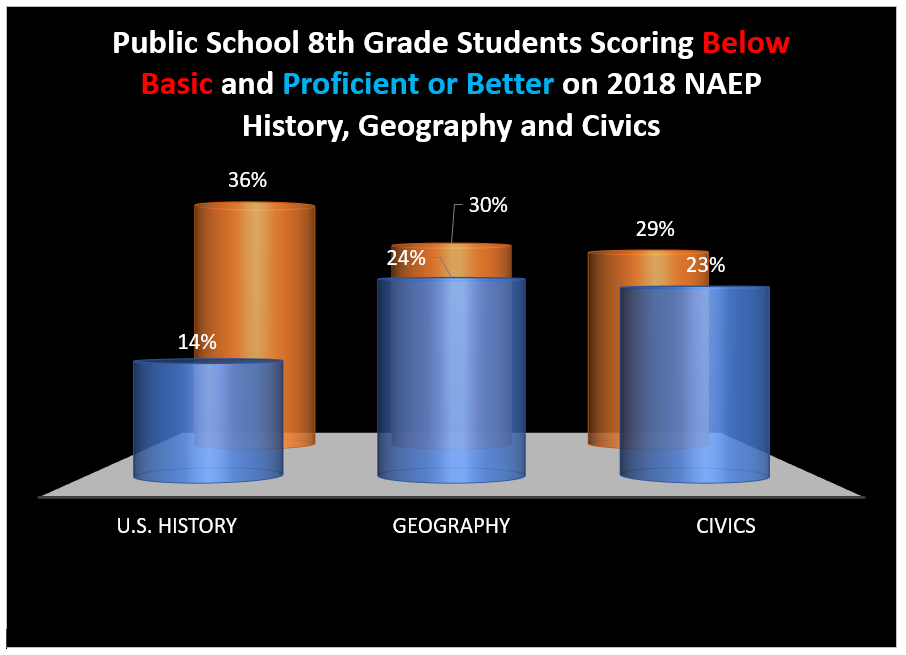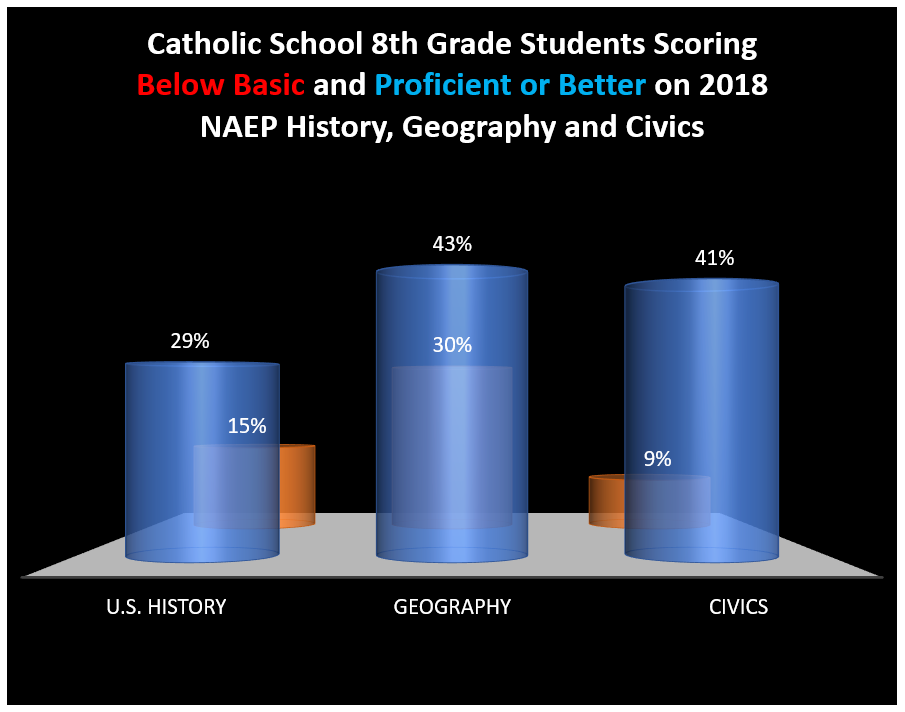 Diffusion, then, rather than discovery, is the duty of our government. With us, the qualifications of voters are as important as the qualifications of governors, and even comes first in the natural order. -Horace Mann
Diffusion, then, rather than discovery, is the duty of our government. With us, the qualifications of voters are as important as the qualifications of governors, and even comes first in the natural order. -Horace Mann
Preparing students to responsibly exercise citizenship represented a foundational aspiration in the founding of the American public-school system. Then as now, we did not simply aspire to have schools equip students with the knowledge and skills necessary for economic flourishing; we also wanted students to develop a grounding in history and civics.
Our education system is failing to accomplish this goal.
Last week, the National Assessment of Educational Progress (NAEP) released nationwide eighth-grade data on the 2018 exams taken in United States History, Geography and Civics. Fewer than one-third of American public-school students scored proficient on any of the three exams. In fact, on each exam, the percentage of public-school students scoring “Below Basic” exceeded the percentage scoring “Proficient.”
For every eighth-grade public-school student who scored “Proficient,” there were more than 2.5 who scored “Below Basic,” the lowest achievement level. We can’t be sure what the ratio of “Proficient” to “Below Basic” would be among American eighth-graders if we abolished their history classes, gave them a library card and offered to pay them a dollar for every history book they read, but it might surpass 2.5 to 1.
While scores aren’t available for private schools in general, scores for Catholic school students are – and they tell a different story.

Scores of Catholic school students show an advantage, in several ways: when comparing them to free and reduced-price lunch-eligible public-school students; non-eligible free and reduced-price lunch populations; and racial and ethnic groups. If you compare Catholic school students of parents without college degrees to public-school students of parents without college degrees, Catholic school students get the better of it. The same holds true when you compare Catholic school students of college-educated parents to public-school students of college-educated parents.
Ironically, we heard last week a faint echo of the Know-Nothing Party’s anti-Catholic school rhetoric directed at home schooling. Harvard Magazine quoted Harvard Law professor Elizabeth Barthole:
“From the beginning of compulsory education in this country, we have thought of the government as having some right to educate children so that they become active, productive participants in the larger society,” she says. This involves in part giving children the knowledge to eventually get jobs and support themselves.
“But it’s also important that children grow up exposed to community values, social values, democratic values, ideas about nondiscrimination and tolerance of other people’s viewpoints,” she says, noting that European countries such as Germany ban homeschooling entirely and that countries such as France require home visits and annual tests.
People can have honest disagreements about home-school policy, but I invite the reader to ponder the first chart in this post and attempt to square it with the quote above. Should we be worried about the civic values and knowledge of the 3 percent of students who home-schooled before the pandemic? Or might the appalling lack of history, geography and civics displayed by the 87 percent or so students attending public schools constitute a more pressing concern?



There are better reasons for the American public, wherever and whenever possible, to opt out of state schools and into private ones, at least until the “Every Student Succeeds” act is repealed; but these social humanities data provide another one. Private schools outperform public ones in English, but at least the Common Core (or its successors) doesn’t fatally limit student achievement in that subject, as it does in mathematics, with its grade-level definitions that leave American youth, by design, 2-3 years behind their competitors in East Asia and northern Europe, who regularly displace American citizens from the most selective major faculties in California’s most competitive campuses, since the delayed introduction of physics leaves those teens ill-prepared to succeed; and white and black Americans regularly remain monolingual, since their schools don’t begin teaching languages additional to English until after the prime language-learning years are finished, so these civic history scores are not alone in disappointing those of us who know better what Americans could be doing, and not just what they have been doing.